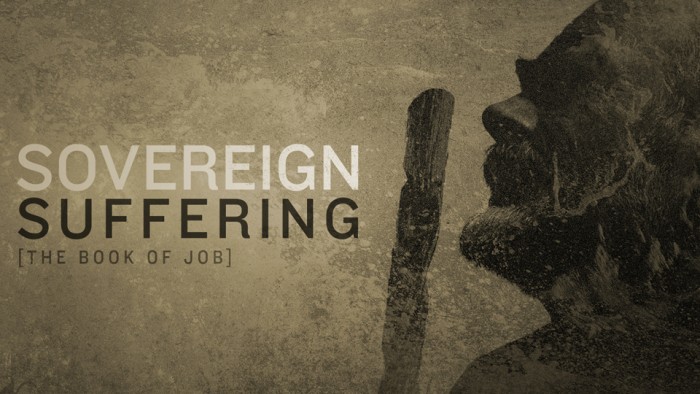On a January day in Paris, in 1895 Alfred Dreyfus, a young Jewish artillery officer in the French army and devoted family man, wrongly convicted of selling military secrets days earlier in a rushed court-martial, was brought out to a military courtyard on the Champ-de-Mars publicly degraded before a gawking crowd. His insignia medals were stripped from him, his sword was broken over the knee of the degrader, and he was marched around the grounds in his ruined uniform to be jeered and spat at, while piteously declaring his innocence and his love of France.
In a similar manner we find Job, in chapter 18, summoned to his Bildad’s courtroom and wrongly convicted of “wickedness deserving of extreme suffering,” degraded as deserving of hell. All the while Job maintains his innocence, so even though Satan is using Bildad to tempt Job with hopelessness, we now want to see “Job’s Hopefulness” in chapter 19.
IS GOD AGAINST ME?
Look at Job’s immediate response to Bildad in 19:2,
“How long will you torment me
and break me in pieces with words?
Far from offering comfort, Job’s friends continue only to wound him with their wrong counsel (19:3). Job freely admits in 19:5-6, “Yes, Bildad, it seems as if God is treating me like an unrepentant enemy, but I’m not his enemy. This makes no sense.” In 19:8-11 Job piles up all these verbs to describe how God is attacking him. And look at how he summarizes it all in 19:12,
His troops come on together;
they have cast up their siege ramp against me
and encamp around my tent.
Job feels like God is a commander in chief who has sent untold forces to lay siege upon his soul, a soul Job likens to a “tent.” It’s a brilliant portrayal of Job’s fragility and weakness; Job is a mere tent in the middle of a massive sovereign onslaught. Now in 19:13-20 Job goes on to say that not only is God warring against him, but that his family and friends have left him all alone. Notice the anguish of 19:14,
My relatives have failed me,
my close friends have forgotten me.
Skip down to 19:19,
All my intimate friends abhor me,
and those whom I loved have turned against me.
The storm rages and Job just wants to taste some friendly mercy (19:21), but he can’t find any. And so in 19:22 he likens his friends to being dogs, predators not satisfied to merely feast on his weak body. They want to destroy him. It’s an astonishing storm of apparently senseless suffering is it not? It sounds like Job is utterly hopeless, it sounds like Job believes God is against him. The question thus is, “Will Job trust God is for him even though his suffering makes no sense?”
MY REDEEMER LIVES
Someone once said, “It’s only when the night is darkest that stars shine their brightest.” How true that is with Job. It’s amazing how the depth of Job’s dark night of suffering only serves to amplify the shining star of trust in God; Job is full of hope. Notice 19:23-24,
Oh that my words were written!
Oh that they were inscribed in a book!
Oh that with an iron pen and lead
they were engraved in the rock forever!
He longs for his story to be written (what a glorious irony that it in fact was) on a page or in a rock and vindicate him as a true believer and child of God, whatever his friends think of the matter.
Job it seems as though Job knows an engraving on a rock can fade and “so [he] now makes the wonderful jump from a yearning (‘Oh, that . . .’) to a faith-filled hope (‘I know . . .’).” Hear now one of the most amazing declarations of hope in all the Bible in 19:25-27,
For I know that my Redeemer lives,
and at the last he will stand upon the earth.
And after my skin has been thus destroyed,
yet in my flesh I shall see God,
whom I shall see for myself,
and my eyes shall behold, and not another.
My heart faints within me!
Oh, may God give us such faith. May hope in this Redeemer lead us to never fear when death is near. I want you to see three truths about the Redeemer in which Job hopes. First, Job hopes in a living Redeemer. This Redeemer literally “lives forever.” In the Old Testament a kinsman-redeemer was someone tied to you by covenant, usually a relative whose calling was to stand for you when you were wronged; he was your “Champion” and “Vindicator.”
Second, Job hopes in a defending Redeemer. The original Hebrews says this Redeemer will stand “upon the dust,” he will trample the dust that came to symbolize death and “stand” for His own. This verb stand refers to a witness standing in court to bear testimony.
Thirdly, Job hopes in a consuming Redeemer. To gaze upon the beauty of this Redeemer is all consuming; “his entire inner being was ready to burst with a holy passion to look upon God. At the conclusion of chapter 17 Job asked, “Where then is my hope?” His answer, “Here then, in this living, defending, and consuming Redeemer, is my hope.”
What will be your anchor of hope when senseless suffering comes? There is but only one anchor, this Redeemer Jesus Christ.

